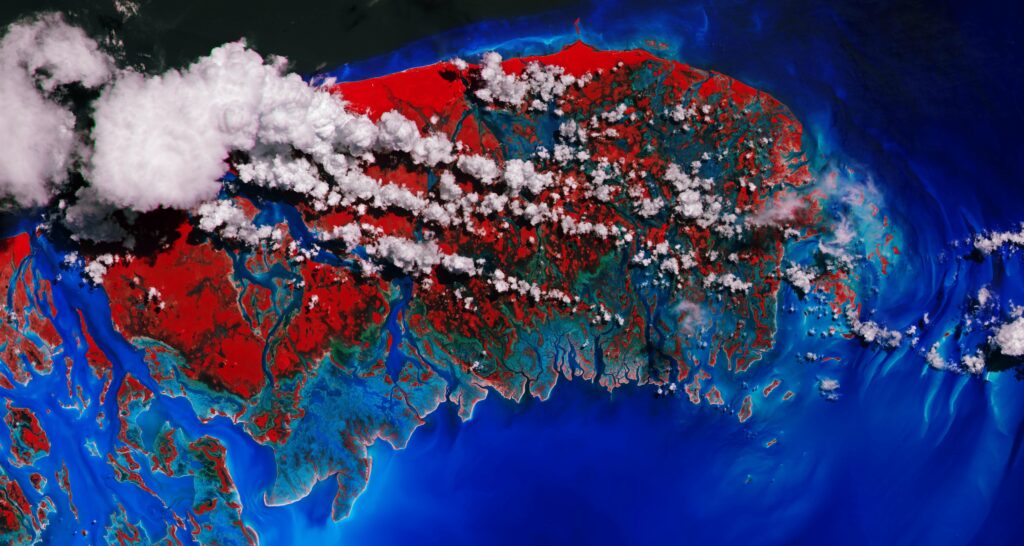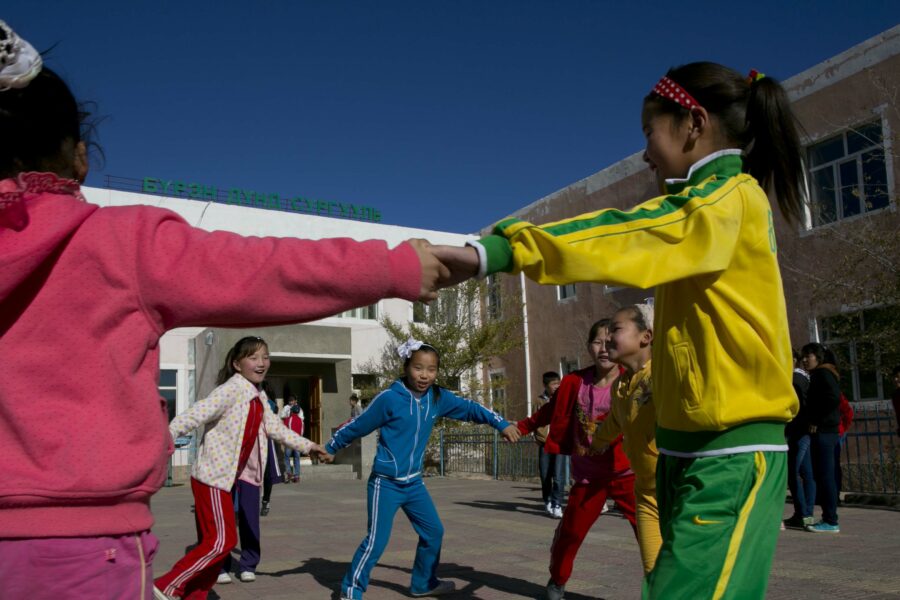Strengthening resilience in the face of climate change
With the impacts of climate change ramping up, building resilience, particularly in developing countries and small island states, is now critical and urgent. We must convert our knowledge of climate solutions into priority actions now to achieve rapid and sustainable transformations
Climate — Global

Waste, inequality, climate change, and biodiversity loss hamper progress towards the Sustainable Development Goals (SDGs). These factors are often linked: climate change damages coastal ecosystems and biodiversity through sea-level rise and storms. However, the poor are more affected by these events and recover more slowly from them, while exposure to repeated events increases income inequality.
Climate change takes place unequally on the planet as well. In 2013, researchers from the University of Hawaii indicated that dates for departure from historical climate regimes varied markedly depending on location. Mangroves, coral reefs, and other important ecosystems found in the tropics and developing countries will quickly be exposed to new climates. Unfortunately, the countries responsible for conserving those ecosystems are least able to manage them. Consequently, the ecosystems may degrade and the socio-economic systems they support will suffer.
Climate change has numerous effects. The average number of hurricanes in the Atlantic basin has increased. Droughts, wildfires, and the incidence of vector-borne diseases have risen. Research shows that increased high temperatures will affect health, sometimes causing death due to heat in tropical regions. Increased temperatures decrease economic productivity and increase the demand for energy to cool buildings. Tourism on Caribbean and Central American beaches has been damaged by vast mats of seaweed from the southern Atlantic. The amount of seaweed is increasing because of high ocean temperatures (partly caused by emissions from airplanes) and agricultural runoff from southern America and Africa. Tropical cyclones often cause catastrophic death and dislocation. But the effects of drought can be longer lasting, resulting in more lives lost and people displaced. Droughts and floods can disrupt food systems and biodiversity loss, increase water-borne diseases and other illnesses.
Many of these phenomena will be experienced in tropical countries first, particularly among small islands. Such countries have little capacity to deal with changing climates and have contributed little to the problem. Some are lagging in achieving the SDGs. They typically have economies dependent on exploiting natural resources rather than on highly developed human capital. They are more vulnerable to climate change and exposed to natural hazards in comparison to developed economies.
Some industries affected by climate change may not be acting to mitigate it. Coastal tropical tourism is highly vulnerable to sea-level rise, sargassum blooms, temperature rises, and tropical cyclones. However, flying in customers, and poor practices such as using large amounts of energy and water, and damaging reefs and mangroves are contributing to climate change and vulnerability. Some of these cannot be changed. But governments in tourism-dependent countries need to find ways of transforming the tourism industry to sustainability urgently.
The factors that make countries and communities vulnerable are interlinked, as are the SDGs and their targets. Pursuing a single goal, even one of vital importance, is not recommended, since the linkages may lead to losses in other goals. The Global Sustainable Development Report suggests taking the linkages into account and pursuing entry points rather than individual goals. Increasing resilience should also manage trade-offs and capitalize on synergies. Resilience is increased when inequality is reduced, so addressing multi-dimensional poverty and providing social protection like universal access to healthcare and quality education builds resilience. Human capital is the most important component of nations’ wealth, so increasing quality of education, improving access to education and increasing internet access for the rural and urban poor and for girls is vital.
Reports on the SDGs agree that it’s better to focus on a few key areas rather than individual SDGs. Key areas include:
- decarbonizing energy
- creating sustainable cities and peri-urban settlements
- creating sustainable food systems
- creating just economies
- sustaining the global environmental commons
- increasing digital access
Each country should develop development pathways that increase resilience and make durable improvements to human well-being. For example, an efficient public transport system that uses electricity could reduce energy use and improve the sustainability of an urban center. Other possible actions are discussed below.
The next agricultural revolution?
Current agricultural systems cannot be upscaled to feed the world without exceeding planetary boundaries. So if we want to feed the world, we will need to transform the agricultural sector. Several companies are researching if they can reduce greenhouse gas (GHG) emissions associated with livestock rearing by culturing meat and animal proteins directly, rather than by rearing animals. Perfect Day, a manufacturer of dairy proteins (used to make cheese, ice cream, and other products), indicates that it creates 85% less GHGs than by using conventional methods. Other companies indicate substantial progress in creating meat and fish for consumers. These new technologies may not eliminate animal rearing, but can significantly reduce the emissions and land used by this branch of agriculture.
Toward zero-energy buildings
The University of the West Indies worked with local architects and builders to design and construct the first net-zero energy building for the Caribbean. It is a multi-use facility and uses techniques and materials readily found in the Caribbean, so it can be replicated. The building generates more energy than it consumes and is resistant to hurricanes.
Harnessing technology and data
Developing countries may lack the resources to collect data needed to manage climate change and build resilience. Increasing access to technology such as anonymized cell phone data and remote-sensing data can track progress toward improving human well-being. It can also provide increased access to information and the tools to improve well-being in remote or impoverished areas.
In Guyana, a sizeable country with a small population, monitoring its tropical forest would be impossible without satellite data. Guyana has international agreements to manage its tropical rainforest to sequester carbon. Consequently, it analyzes freely available satellite data to measure the extent of forest and track progress towards SDG 13 (climate action) and SDG 15 (life on land). The system provides evidence for the effectiveness of national forestry actions and how well it is storing carbon and mitigating climate change.
Improving techniques to forecast weather, especially drought and extreme events, while extending information technology and insurance schemes for farmers, is important. Oxfam, Aon and others have been successful in extending parametric insurance to farmers in Kenya. Payments are dependent on data collected by satellite and are usually automatic. As a result, crop yields have increased, mainly because the risk of planting and experiencing financial loss due to crop failure has decreased. A similar scheme was piloted by Oxfam in Sri Lanka and was also successful. The use of blockchain-based parametric insurance could be used to cover other risks. Payments based on satellite or other remote data would be a marked improvement over most current systems.
The Swedish Meteorological and Hydrological Institute uses cellphone towers to measure the amount of rain falling in Stockholm. The information produced is more accurate than most weather monitoring systems and uses existing and widespread technology. It could be applied to developing countries, which often have cellular networks but lack early-warning systems for weather events.
Addressing climate change will require innovation and a multidisciplinary approach based on good-quality evidence. For many economies and systems, upscaling what is being done currently will create major problems. A transformation is therefore required. This means scientists, businesses, government, and civil society must work together to implement solutions and build resilient societies.




